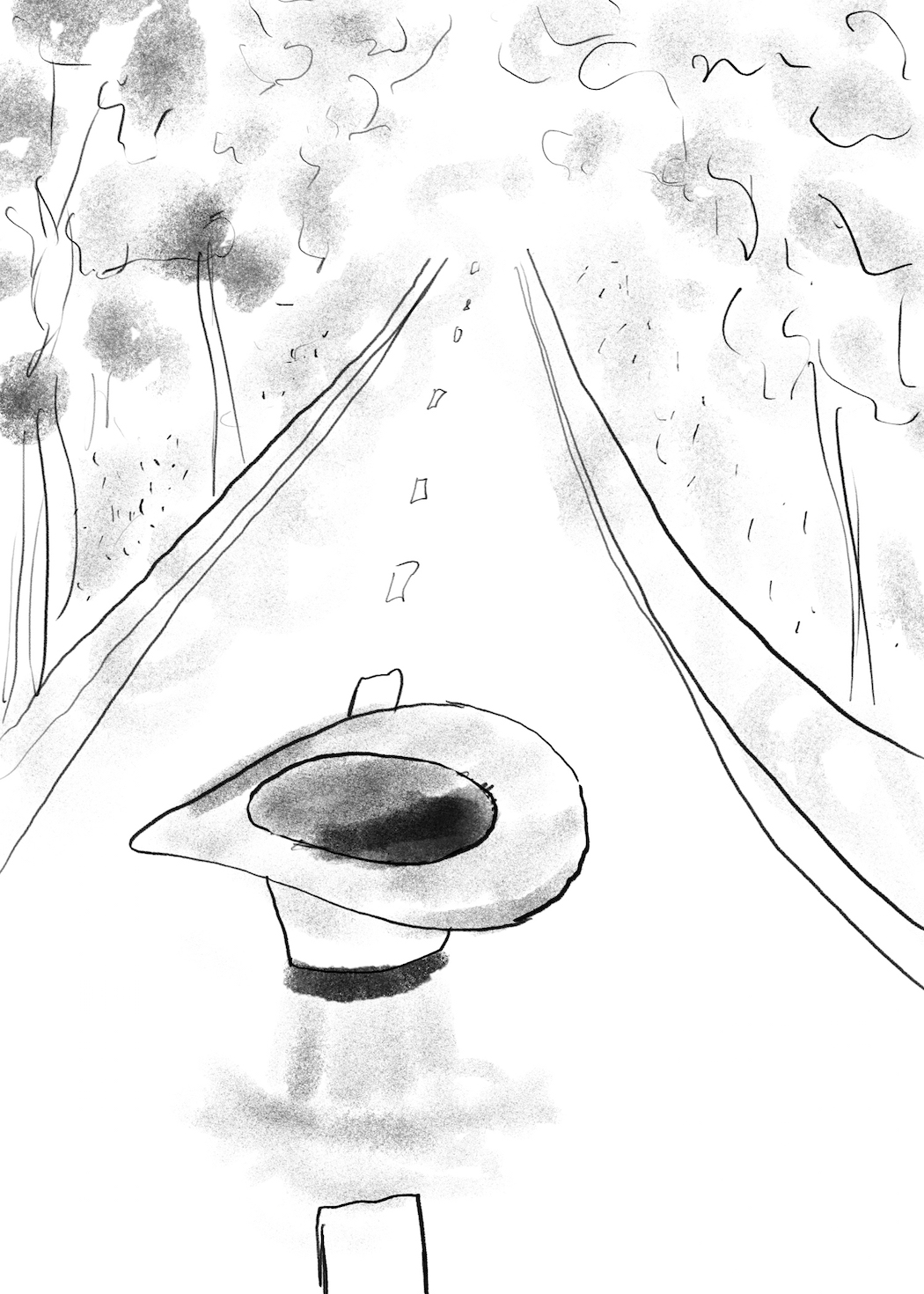The south is not your scapegoat
February 11, 2022
 This
piece represents the opinion of the author
.
This
piece represents the opinion of the author
.
 Clara Jergins
Clara Jergins“What are y’all sorry about?”
Following my first semester as a Polar Bear, I nearly bawled after seeing a cowboy hat at the Memphis International Airport. That flamboyant hat, paired with muddy cowboy boots and a raspy Southern drawl was enough to make me break out into song. I never would have expected the phrase, “boy gon’ ahead and pass me that comeback sauce” would bring me so much joy. Yet there I was, fangirling over the (roughly) 60 year-old man at Gate 47.
While growing up in the suburbs of northern Mississippi, I wanted to escape as quickly as I could. The word “escape” is pretty dramatic, but it’s fitting. I felt like I was confined to a human wasteland with no progress in sight. Currently, I’m a proud Memphississipian, much to the disappointment of a younger Chayma.
This isn’t a story about how I read Faulkner’s “As I Lay Dying” and discovered the hidden beauty of my state, nor is it a story about how a stroll to an abandoned Sears unlocked my third eye. I’m not Greta Gerwig, and this isn’t an A24 production.
This is about how classism at Bowdoin made me appreciate the state I once despised.
As someone who’s never been up North, coming to Bowdoin was pretty anxiety-inducing. I didn’t quite know what to expect. I had a couple of great first encounters with my peers. Then, not even fully into orientation week, I had a less-than-ideal encounter with another first year. We asked each other the basic small talk questions and I told them I’m from Mississippi. They grimaced, responding with, “Oooh, I’m so sorry.”
Backhanded comments about my state weren’t in my list of expectations for orientation week. As the semester progressed, I found myself growing tired of the Southern hatred trope that I had frequently entertained.
Sneering at the “Lost Cause” that is the South isn’t a foreign idea to me. However, hearing this rhetoric being spewed from the mouths of northerners—some of whom have never stepped foot in the South—was an entirely different experience. Sure, let’s entertain the idea that the South is a lost cause. What does that make the rest of the U.S.? Is the North exempt? Why?
It’s easy to pretend that the institutional problems we face stem from a specific source. It’s easy to pretend that places like Mississippi are where all the racists congregate, where violence is unavoidable and where white men with protruding beer bellies walk around Walmart like they’re at a gun range. It’s comfortable believing that the nation’s most pressing issues (racism and poverty, for example) are far away from us—just beyond our reach for it to be our problem.
I feel as though it is important to acknowledge that the Southerners afflicted by these issues are mostly people of color, in particular Black Americans. According to the 2000 U.S. Census, 54 percent of Black Americans reside in the South. Of this population, many suffer from voter suppression, food insecurity and homelessness. Playing into the “Lost Cause” rhetoric means turning a blind eye to the marginalized people progressive Northerners claim to advocate for.
There is no moral division between the South and the North. Prejudice exists everywhere. Activists exist everywhere. The judicial system is unjust across the board. The entire nation has a tumultuous history of racism and poverty. No region is better than the other. In fact, I might argue that they are nearly identical.
I am not here to play the blame game. I, too, spent a good chunk of my life playing into lazy generalizations about the South. What I am here to do is set y’all straight. What are you really sorry for? I for one hope it’s for using the South as a scapegoat for national issues. I expect better from Bowdoin students than taking things at face value.
Chayma Charifi is member of the Class of 2025.
Comments
Before submitting a comment, please review our comment policy. Some key points from the policy:
- No hate speech, profanity, disrespectful or threatening comments.
- No personal attacks on reporters.
- Comments must be under 200 words.
- You are strongly encouraged to use a real name or identifier ("Class of '92").
- Any comments made with an email address that does not belong to you will get removed.

Great job
In case you still feel warm and cuddly with the good ole South try reading this:https://www.washingtonpost.com/history/2022/02/20/mississippi-black-africa-mccallum/. Also look up Theodore G. Bilbo, senator for Mississippi from 1934-1947. While prejudice exists everywhere the South didn’t become the poster child for bigotry and prejudice for no reason.
James Pierce
Bowdoin 1969
respectfully,
how does this in any way relate to the article presented above?
cheers